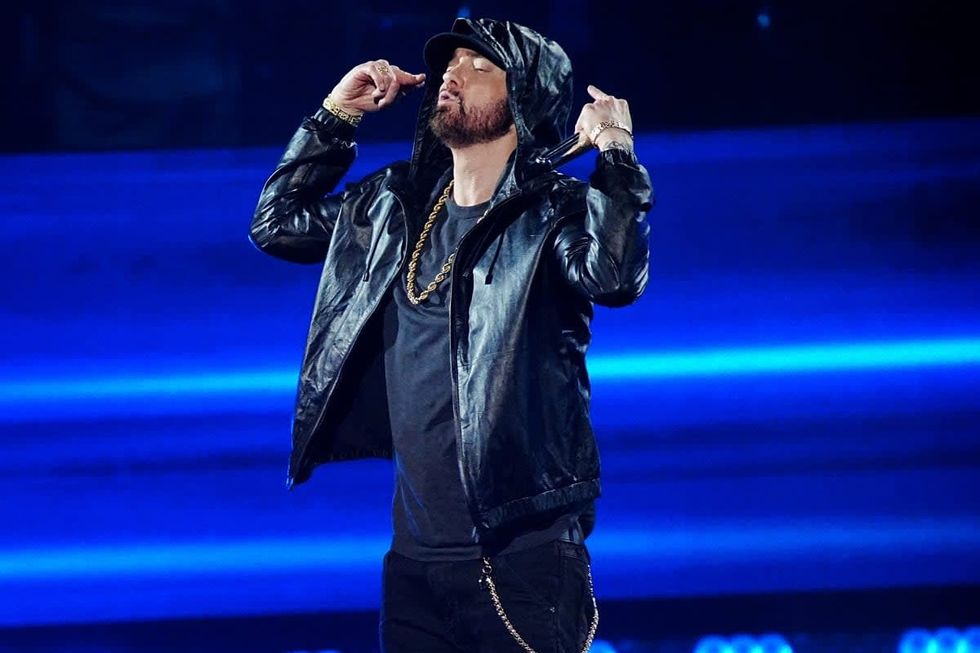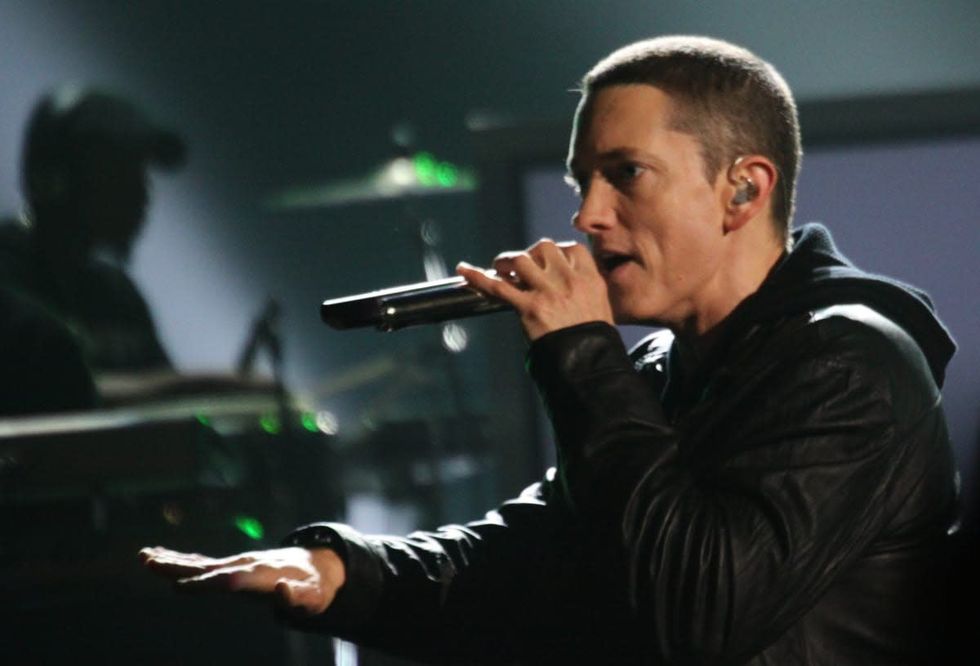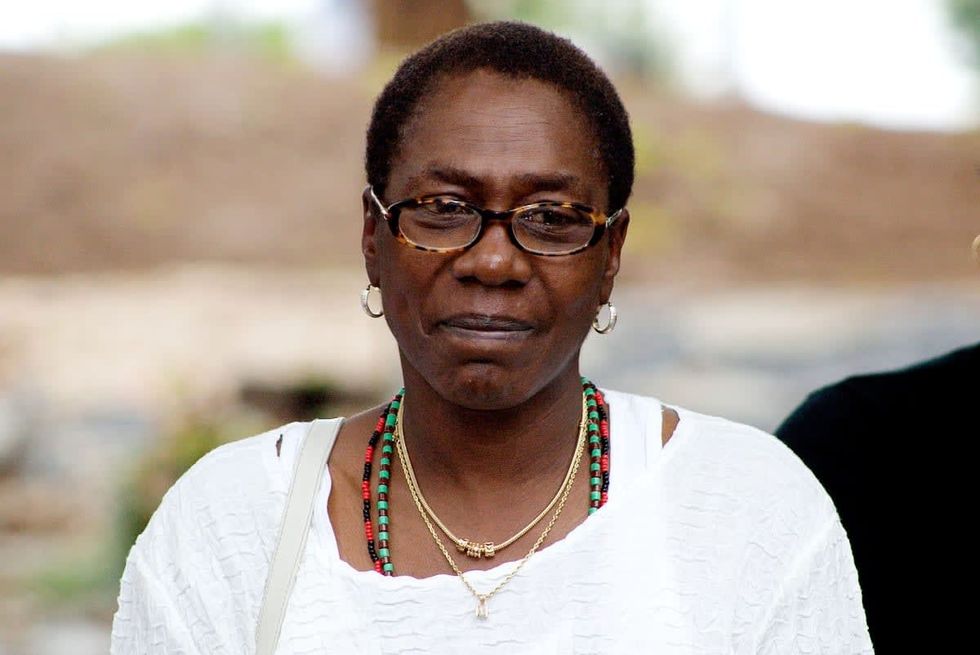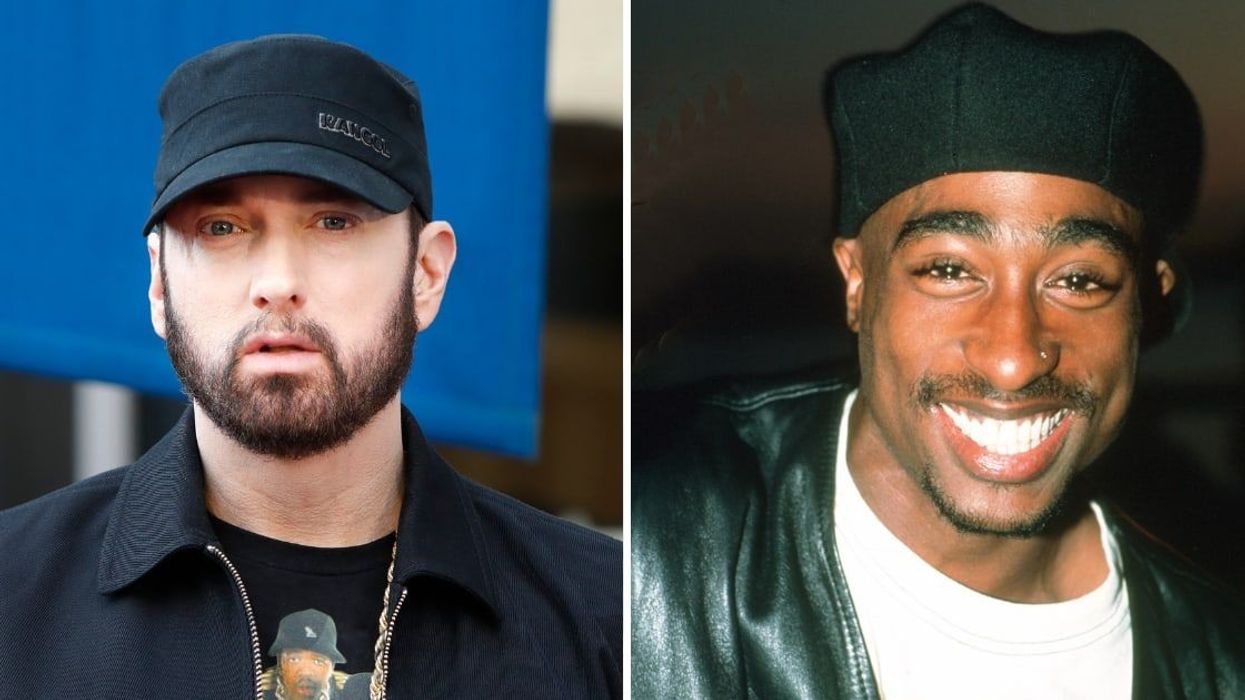Iconic Tupac Shakur inspired countless artists with his flawless raps, dramatic performances and enthralling music. Among his countless admirers was Eminem. When Tupac was an international star, Slim Shady was trying to make a name for himself in the music industry while working in a fast-food restaurant. So years later, when he became a legend among rappers, he penned a heartwarming letter to Tupac’s mother, Afeni Shakur, sometime after Tupac's death from a gunshot in Las Vegas, Nevada, on September 13, 1996.

The letter by Eminem, which was originally published in the rapper's 2008 biography "Tupac Remembered," has resurfaced on social media, receiving emotional responses from fans of the duo. In addition to a handwritten letter, the "Killshot" rapper also enclosed a drawing he made of Tupac. He began the letter by modestly calling the drawing “sloppy" and added that he could have drawn a better sketch, given he had a good quality supply of pencils and pens at the time.
“I’ve been drawing since I was 10, and I thought you might like it,” he wrote. “Anyways, thank you for always being so kind to me. You are a true Queen, and I mean that in every sense of the word. I will never forget the opportunities you have given me. You will always be in my heart, my thoughts, and my prayers."

The letter continued, “As I have said before, you have no idea how much your son and his music has inspired not only the ‘hip-hop’ world but, speaking for myself, inspired my whole career. He was and still is the true definition of a ‘soldier'." Eminem shared how Tupac gave him the courage to stand up for himself against the world and care the least if people liked him or not. "When I was feeling at my worst (before fame, before Dre), I knew I could put that 'Tupac' tape in and suddenly, things weren't so bad...Thank you for giving us his spirit and yours! God bless you!" Tucked with the letter, he attached Tupac’s signature bandana and signed the note with the initial of his original name, “Love, Marshall.”

A screenshot of the letter was also shared on Reddit by r/Eminem, the official subreddit for Eminem records. As per Rolling Stone, the emotional letter was also displayed in an exhibition at the Tupac Amaru Shakur Center for the Arts in Stone Mountain, Georgia. In April 2023, Eminem appeared in a cameo in "Dear Mama: The Saga of Afeni & Tupac Shakur" docuseries and spoke about his deepest feelings for Tupac. “Tupac was the first rapper to me that could make you cry. I felt him that much. He was one year older than me. After he passed, I wrote to Afeni and drew a picture. She understood I was such a huge Tupac fan. She’s like the sweetest lady I’ve ever met.”
This instance, according to Eminem, led him to work as a producer and executive producer with Tupac's mother on the soundtrack for his 2003 documentary “Tupac: Resurrection." Eminem also contributed to the production of Tupac’s fifth posthumous album “Loyal to the Game,” which was released in 2004 and debuted at No.1 on the Billboard 200.

Following this heartfelt gesture, Afeni replied to Eminem with a letter where she thanked him. She revealed that though many people had approached her to express their gratefulness and praise for her son, almost always they had some personal agenda hidden behind their compliments. She said that Eminem was the first one who hadn’t asked her anything in return for his love. “Not until now has anyone approached me to give everything they have, and to give it with such integrity,” she wrote.
“This is the spirit that we all need to search our souls for to give to each other, unconditionally, without personal agenda for no reason but that it's the right thing to do,” she said. “I believe this young man has given his spirit to Tupac's project because of what Tupac's spirit gave to him and to all of us, young, old, male, female, black, white, and brown.” She concluded, “I must personally thank Marshall Mathers, for stepping up to the plate and in Tupac's words.... thank him for staying loyal to the game."

This article originally appeared five months ago


















 Revenge can feel easier than forgiveness, which often brings sadness or anxiety.
Revenge can feel easier than forgiveness, which often brings sadness or anxiety. 
 In the past two years, two malaria vaccines have become available for babies starting at 5 months of age.
In the past two years, two malaria vaccines have become available for babies starting at 5 months of age. By exploiting vulnerabilities in the malaria parasite’s defense system, researchers hope to develop a treatment that blocks the parasite from entering cells.
By exploiting vulnerabilities in the malaria parasite’s defense system, researchers hope to develop a treatment that blocks the parasite from entering cells. Created with
Created with 

 Volunteers who drive homeless people to shelters talk with a person from Ukraine in Berlin on Jan. 7, 2026.
Volunteers who drive homeless people to shelters talk with a person from Ukraine in Berlin on Jan. 7, 2026.
 Tasks that stretch your brain just beyond its comfort zone, such as knitting and crocheting, can improve cognitive abilities over your lifespan – and doing them in a group setting brings an additional bonus for overall health.
Tasks that stretch your brain just beyond its comfort zone, such as knitting and crocheting, can improve cognitive abilities over your lifespan – and doing them in a group setting brings an additional bonus for overall health. Overdoing any task, whether it be weight training or sitting at the computer for too long, can overtax the muscles as well as the brain.
Overdoing any task, whether it be weight training or sitting at the computer for too long, can overtax the muscles as well as the brain.

 Amoxicillin is a commonly prescribed broad-spectrum antibiotic.
Amoxicillin is a commonly prescribed broad-spectrum antibiotic.  Chart: The Conversation, CC-BY-ND
Chart: The Conversation, CC-BY-ND
 Counterintuitively, social media can make you feel more bored and lonely.
Counterintuitively, social media can make you feel more bored and lonely. Talking about what you’ve read can add a social dimension to what can be a solitary activity.
Talking about what you’ve read can add a social dimension to what can be a solitary activity.